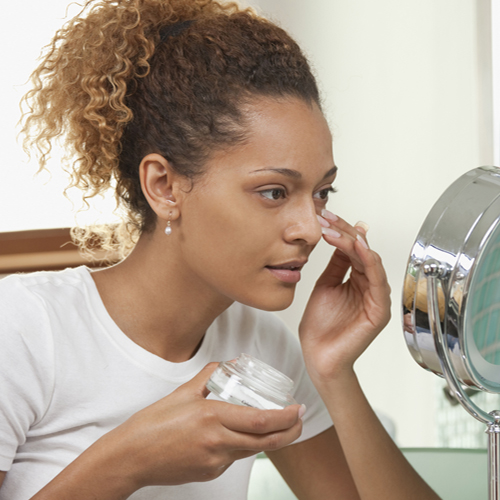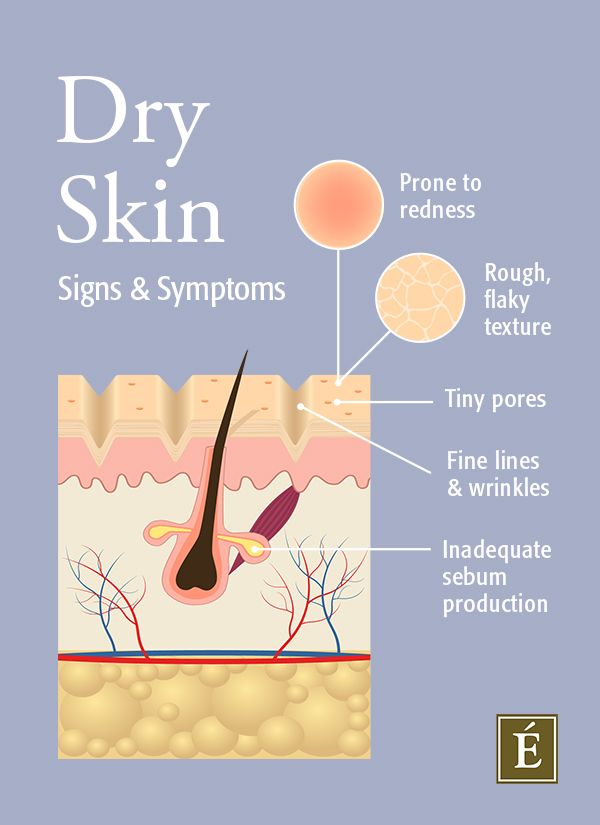Ultimate Guide For Oily Skin: Everything You Need To Know
Oily skin can be a struggle. There is no greater (beauty) disappointment than starting the day with a fresh complexion that turns into the oil spill area at noon. Fortunately, there are some skin care tips and tricks out there to help keep your oily skin under control and keep your complexion fresh all day. Here is our comprehensive guide to caring for an oily complexion, including a curated skin care regimen for oily skin.
The causes of oily skin
From climate to genetics, there are a multitude of factors to blame when wondering why you have oily skin.
Oily skin is hereditary
Oily skin is linked to a hereditary tendency to overproduce the hormone dihydrotestosterone (DHT), which causes the skin to produce excess sebum. We need sebum – the oily, waxy substance that lubricates the skin – to keep our moisture barrier intact, but overproduction can become problematic. Causes excess oil Pores enlarge (as they stretch to take in the amount of oil produced), and when trapped, oil can bond with dead skin cells and bacteria on the skin's surface, causing breakouts.
The climate
Another common trigger is the hot summer months, and heat and humidity can increase oil production. You may be overcorrecting and trying to stamp out oily skin by cleaning it four times a day or exfoliating too often. However, these methods remove your skin's natural oils and compromise its barrier function.
Hormonal fluctuations: excessive sebum production
You don't imagine it – even after puberty, hormones can damage your skin. During pregnancy, menopause, or during our periods, hormonal fluctuations can lead to excessive fat and breakouts. According to Foreo.com: “Androgens are the main hormones responsible for oil production. Sometimes they can fluctuate and stimulate an increase in sebum production. This often happens during puberty, just before menstruation, during pregnancy, and during menopause. "
Hard skin care products
Sometimes, oily skin can be triggered by using the wrong skin care products. When choosing products for oily skin, Dr. Hooman Khorasani, Dermatological and Cosmetic Surgeon suggests that you look for those that come in gel or lotion formulations. “Choosing moisturizers can be a challenge even for oily skin,” explains Dr. Khorasani. “Choosing light or matte moisturizers can be a solution. Oil-absorbing sheets are also handy throughout the day. "

Oily Skin Benefits That May Surprise You
While oily skin may seem difficult to care for at first, you might be surprised to find that oily skin has its benefits.
More resistance to the appearance of wrinkles
Oily skin types suffer less thanks to the antioxidants produced by over-enthusiastic sebum glands Wrinkles and fine lines compared to dry skin types. You won't avoid avoiding wrinkles, but your lines and wrinkles may not appear as early as other skin types – talk about happiness.
A stronger skin defense system
With oily skin, you produce more sebum, part of our skin's defense system against threats like infection or the environment. Sebum is made up of vitamin E, an antioxidant that acts as a defense mechanism for the skin's surface.
Makeup sits well on oily skin
When it comes to makeup, applying it to dry skin can be flaky and temperamental. However, makeup on oily skin is much more comfortable. While you may have to use a lot of setting spray to keep your makeup from slipping off, it's easier to reapply a layer on oily skin than to struggle with blotchy makeup on dry skin (though that depends on who you ask!) .
Skin type test: how to tell if you have oily skin
There are some freebies that you have oily skin. It often exhibits the following characteristics:
- Shiny looking
- Feels greasy
- Orange peel-like texture with visible, enlarged pores
- The skin is prone to breakouts
- Makeup feels like it's slipping off once it's applied
Still not sure if you have an oily complexion? Try this 3-step test to determine your skin type:
1. Clean and maintain
Wash your face with your favorite Apply Eminence Organics Cleaner and no additional products for at least an hour.
2nd blot
Take a clean piece of handkerchief and gently blot your T-zone to check for any oil residue.
3. Examine your skin
If your skin feels comfortable (not tight) but there is residue on the fabric, your skin is likely oily.
How to treat oily skin
Oily skin can be genetic, but oil production can also be affected by hormones, stress, the environment, and seasonal changes. Here are some tips to keep oily skin at bay.
1. Skip hard, drying skin components
Many of the products that claim to repair oily skin can make it even worse. Most contain harsh ingredients that break the skin's moisture barrier. While this makes your skin feel less oily, it often releases even more oil to even out a dehydrated complexion.
When choosing a detergent Real Simple recommends following this rule of thumb: “You should avoid detergents that contain harsh surfactants that remove too much oil from the skin and leave it dry enough to feel tight – and possibly only squeak when you put your finger over it pull. Some common surfactants are sodium lauryl sulfate (SLS), sodium lauryl ether sulfate (SLES), and ammonium lauryl sulfate (ALS). “Instead, choose natural and organic products that are formulated without harmful additives that draw the moisture out of your skin.
2. Adjust your diet
Avoid alcohol and spicy foods that will raise your heat index. These widen blood vessels and make you sweat, which adds sweat to your already smooth complexion. Instead, store Foods like carrots, grapefruit, and kale, which are high in vitamin A and slow down oil production. And don't be afraid of fatty foods. In fact, foods like salmon, tuna, walnuts, and pumpkin seeds, which are high in omega-3 fats, regulate the hormone that controls oil production and keeps the skin balanced.
3. Keep your skin care routine cool
Eminence Organics President Boldijarre Koronczay recommends keeping masks and moisturizers in the refrigerator to keep your complexion cool and oil-free. He says, "When you apply products straight from the refrigerator, your skin temperature will stay lower, which will reduce excess oil production."
4. Embrace the minimalism
If you have oily skin, it may be time to rethink your makeup routine. Primers and liquid primers often contain silicones that clog and enlarge pores and make problems with oily skin worse. We recommend replacing your silicone primer with a natural alternative.
Do you have problems with oily skin? Check out this step-by-step skin care regimen that's designed for your skin type. We'd love to hear your tips and tricks to stay in control. Let us know your thoughts in the comments below and join the conversation on social media.
This post was originally published in June 2020 and has been updated for accuracy and completeness.












